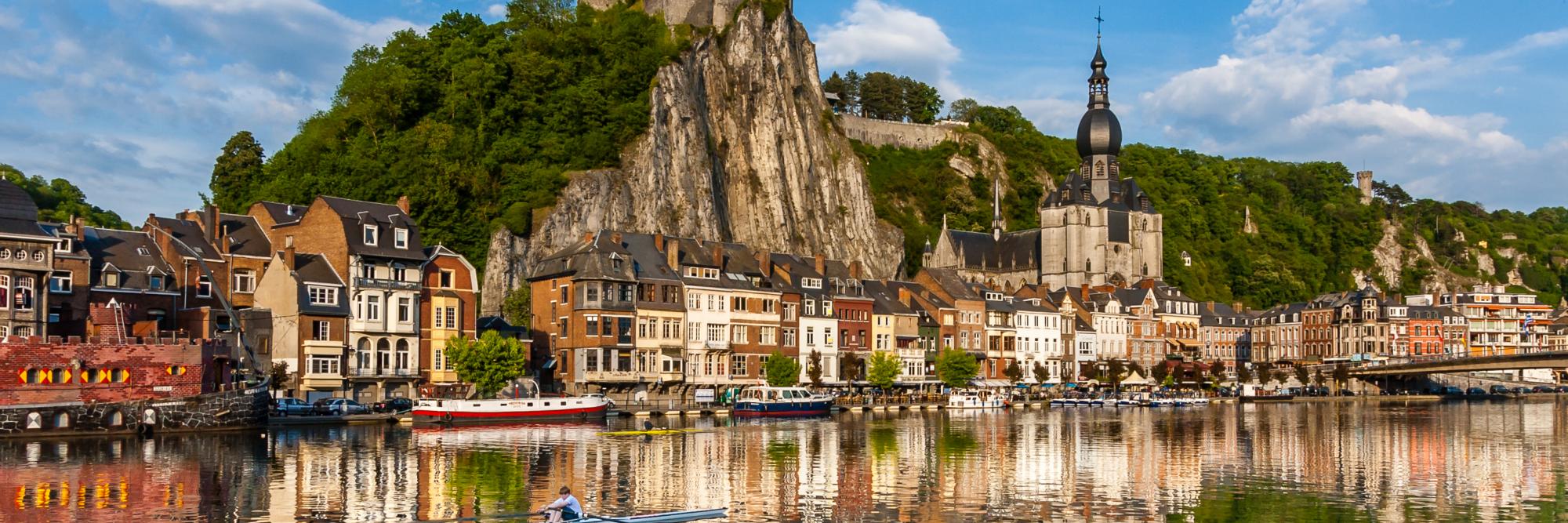Louise Fly resigned from her position as an international advertising consultant five years ago to follow her husband to Belgium, where he had a career-improving job opportunity. She became not only an "accompanying spouse" but also a full-time expat mother and housewife – an experience that has equipped her very well to advise other expat spouses.
Read more about Belgium in the Expat Arrivals Belgium country guide or read more about expat experiences in Belgium.
 About Louise
About Louise
Q: Where are you originally from?
A: Denmark
Q: Where are you living now?
A: Brussels, Waterloo
Q: How long have you lived here?
A: 6 years
Q: Did you move with a spouse/ children?
A: Yes
Q: Why did you move; what do you do?
A: I followed my husband who got a job. Not an expat job but a local job with a local contract. We wanted to try something else. At that time, I worked in the advertising industry. Today, I work as an independent business and expat coach.
About Brussels
Q: What do you enjoy most about living in Brussels? How's the quality of life?
A: Brussels is not too big and has lots of small, interesting areas – cities in the city, like Grand and Petit Sablon, rue Haute et rue Blaise where you find all kinds of furniture shops, etc. There are LOTS of internationals, so you hear all kinds of languages all the time; you meet people from all over the planet. Waterloo, where we live, is more of a classic suburb with a local, Belgian (Wallonian) atmosphere and all shops and restaurants needed.
Q: Which are the best places/suburbs to live in Brussels as an expat?
A: Uccle and Ixelles in Brussels (French-speaking), Tervuren and Overijse (Flemish-speaking), Waterloo (French-speaking).
Q: How do you rate the standard of accommodation in Brussels?
A: From 1 to 10, I'll give it 5. Windows are often only single-glazed, with poor isolation and stone floors (I'm used to wood!)
Q: What's the cost of living in Brussels compared to Denmark? What is cheap or expensive in particular?
A: It's fairly cheap to rent compared to Danish prices – just the fact that you can rent a house and not only apartments is quite unusual for Danes.
Q: What are the locals like; do you mix mainly with other expats?
A: The locals I've met are open minded and friendly. It's always a good idea, though, to learn some phrases of the local language, otherwise it might stay superficial. I mostly mix with locals, but I'm also married to a Frenchman, so almost a local. However, I also have expat friends.
Q: Was it easy meeting people and making friends?
A: It's not easy to make local friends if you don't speak the language. And even then, you need to be active and go and find them in their local environments: sports clubs, local schools and associations. Always say hello to the neighbours, ask them over for coffee, etc. That's the way. Expat friends are easy to find and socialise with. There are a lot of international associations
About working in Brussels
Q: What's the economic climate like in Brussels, is there plenty of work?
A: At the moment, January 2010, it's tough. My husband has been looking for a job for 10 months, and he's even French, meaning he speaks one of the local languages fluently. But there are possibilities; you just have to network to find them and get them! Another good reason to socialise with locals.
Q: How does the work culture differ from home?
A: They have longer working days due to a long lunch. Between 1-2 hours.
Family and children in Brussels
Q: Did your children settle in easily?
A: Yes, but she was also in a private Danish daycare in the beginning in order to soften the transition. Daycares are quite different in Belgium compared to Denmark.
Q: What are the schools like? Any particular suggestions?
A: The Belgian school system is fine in my opinion, and at our children's school there are lots of nationalities though it is local. I like that. There are lots of international schools, so you can always find one that suits your needs.
Q: How would you rate the healthcare in Brussels?
A: From 1 to 10: 10. It's brilliant!
And finally…
Q: Is there any other advice you like to offer new expat arrivals?
A: Don't be afraid to ask for help – whether to a local or another expat. Moving to a new country demands a lot of effort, so admit it and seek help when needed. Be patient – you will settle in. It only takes a little time.
– Interviewed February 2010



